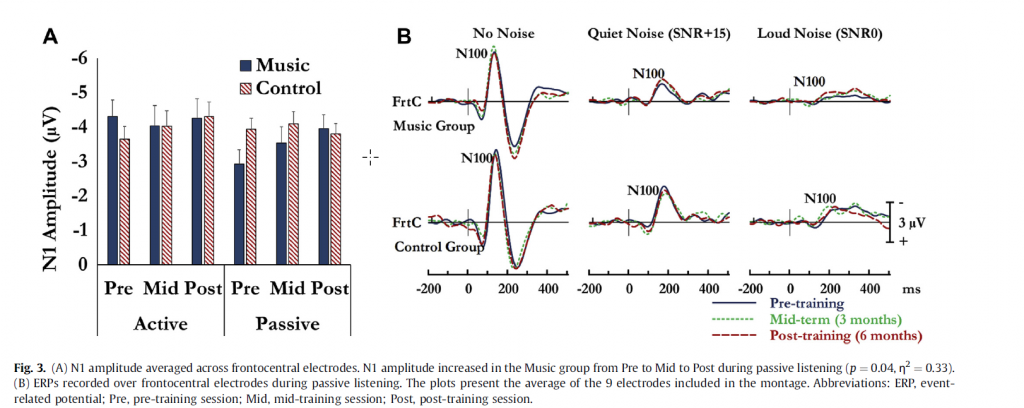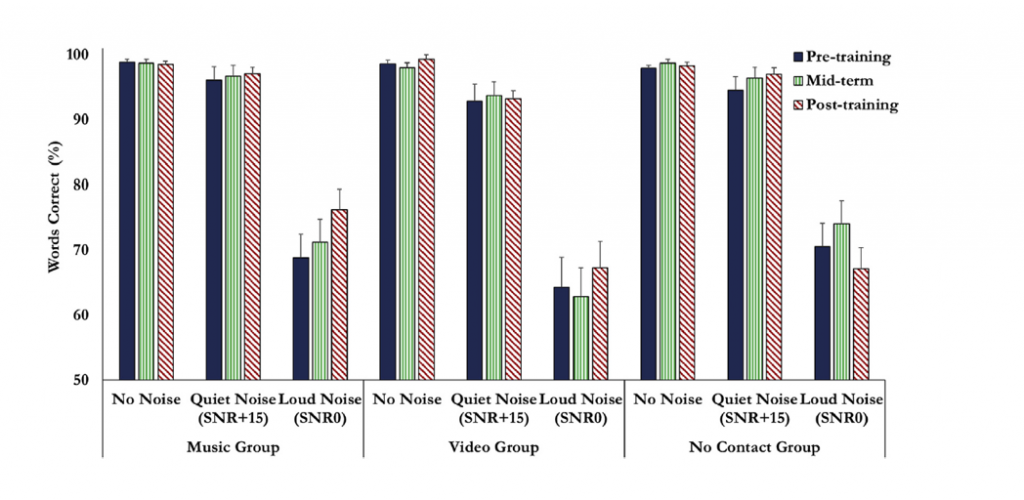
By Justin Piraino, Au.D, Sr. Manager Data Strategy and Analytics, Cochlear Americas

In today’s busy clinical environment, clinicians who value research-based practice often struggle to keep up with current literature. To help, we’re excited to offer a new ProNews Blog monthly feature – Journal Club! Each month, rotating guest authors will present a current journal article summary.
This month’s Journal Club explores a recent Canadian study published in the Neurobiology of Aging, Musical training improves the ability to understand speech-in-noise in older adults.As an audiologist and individual with hearing loss (hearing aid and cochlear implant user), any way to improve the ability to hear in noise for patients or myself is certainly worth my attention. This research can encourage patients who aren’t feeling successful with their hearing loss treatment to engage in rehabilitation exercises.
What did the study investigate?
This study looked at the causal impact of music lessons on older adults. The researchers were interested to determine whether the causal relationship between short-term musical training and performance on auditory test improved hearing and therefore could be suggested to improve hearing in non-musicians.
Why is this important?
These findings support the idea that musical training provides a causal benefit to hearing abilities. Importantly, these findings suggest that musical training could be used as a foundation to develop auditory rehabilitation programs for older adults.
How did they do it?
Below summarizes the key elements of study design and demographics:
- A three-arm, single-blind longitudinal training study with random assignment
- 34 individuals aged between 55 and 75
- Participants were randomized into three
groups using a stratified covariate-adaptive procedure. The groups include:
- Piano training group (Music)
- Video game training group (Video)
- No-contact control group (No-contact)

- Participants took part in three testing sessions:
- The pre-training session (Pre) took place before the intervention, the mid-training session (Mid) took place three months after the start of the intervention and the post-training session (Post) took place six months after the onset of the intervention. During the Pre, Mid and Post sessions, participants completed a series of auditory and cognitive assessments.
Results
Based on the study, six months of self-directed music lessons improved the ability to understand speech in background noise in older adults.
This improvement was related to an increased positivity over frontal-left electrodes from 200 to 1000 ms after the onset of a word. These results suggest that musical training can be used to improve the ability to understand speech-in-noise in older adults by improving how older adults process speech and deploy their attentional resources to speech stimuli.

Discussion
The most critical finding from this study is that music lessons improved the ability to understand speech in noise for older adults.
First, it demonstrates that musical training may have a causal role in improving hearing abilities in older adults. This provides support for previous cross-sectional work demonstrating that older musicians have an advantage in understanding speech in noise compared with older non-musicians1.

Second, it highlights that the brain remains plastic in older adults and is susceptible to modification based on one’s life experiences. In the current context, this is critical as hearing difficulties in older adults are nearly universal2, and one of the most commonly reported hearing difficulties is understanding speech in noisy environments.
Accordingly, the results of this study demonstrate that music-based auditory rehabilitation is likely to be successful in older adults in improving their hearing abilities.
Learn more about musical rehabilitation implications by accessing the publication here and stay tuned for next month’s edition of Journal Club!
References
- Parbery-Clark, A., Anderson, S., Hittner, E., Kraus, N., 2012. Musical experience offsets age-related delays in neural timing. Neurobiol. Aging 33, 1483.e1-4.
- Gates, G.A., Mills, J.H., 2005. Presbycusis. Lancet 366, 1111e1120.
*All figures and tables are from the reviewed article.


